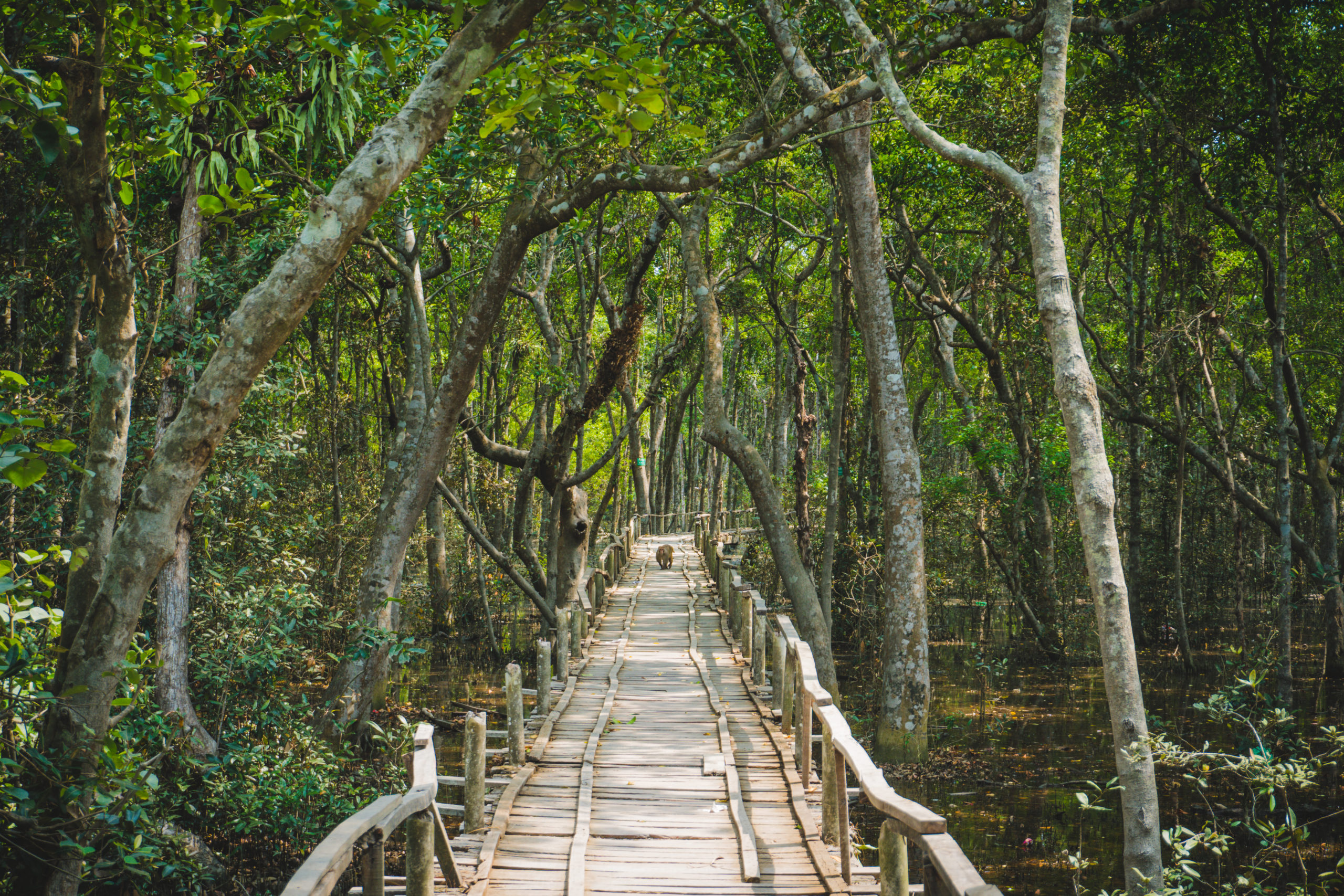The Bangladesh Forest Department is partnering with the USAID Ecotourism Project to develop an Ecotourism Master Plan for the Sundarbans Reserved Forest (herein referred to as “SEMP”).
The Sundarbans Reserved Forest is a significant tourism destination in Bangladesh due to its unique biodiversity, cultural significance, and potential for sustainable economic development. It is home to the largest single block of tidal halophytic mangrove forest in the world, and is one of the world’s last remaining habitats of the Bengal tiger. Visitors can explore the forest’s unique ecosystem by boat or on foot, and the forest is also an important cultural site in Bangladesh, with several famous poets and writers hailing from the region. The tourism industry in the Sundarbans provides economic benefits to local communities, promoting sustainable development and conservation efforts. Given the importance of the Sundarbans to both wildlife and people, it is essential to have in place a comprehensive plan to manage ecotourism in the region in a sustainable and responsible manner.
The SEMP will provide a roadmap for the development of responsible and ecotourism activities in the Sundarbans, taking into account the needs of both the environment and local communities. It will also help to coordinate the efforts of government agencies, development partners, and the private sector, ensuring that they are working together towards a common goal of ecotourism development, management and marketing.
The SEMP will help to ensure that ecotourism development in the Sundarbans aligns with the broader goals of environmental conservation and community development. It will provide guidance on the type of activities that should be developed, the number of visitors that can be accommodated, and the measures that should be put in place to minimize the impacts of tourism on the environment and local communities.

THE WORKING GROUP
A Working Group of technical experts from the Bangladesh Forest Department will guide the SEMP strategy development process.
The role of the Working Group will be to provide strategic direction and leadership to identify specific priorities and possible interventions needed to grow a sustainable ecotourism industry in and around the Sundarbans Reserved Forest. The SEMP working group sets out to foster public-private collaboration to ultimately develop a long-term guide moving the tourism industry forward and ensure tourism supports community development and biodiversity conservation.
The objectives and functions of the Working Group are as follow:
- provide political and strategic guidance on the plan development methodology and the plan itself;
- discuss key issues related to ecotourism development;
- advise on process to identify key stakeholders, help distribute survey instruments and workshop invitations, and support process to solicit feedback on the draft plan;
- support USAID Ecotourism Project to address and prioritize key issues and strategies;
- identify realistic timelines and budgets for implementation of activities;
- discuss communication issues; and
- finalize the SRF Ecotourism Master Plan and integrate this plan into government policy, agency work plans, and budgets.
Stakeholder Engagement & Validation Workshops
In addition to desk research and literature review, a part of the investigation process for the development of this plan includes an online industry survey and one-on-one in-person stakeholder interviews. The resulting information will be anonymized, compiled, analyzed and summarized for the plan.
There are four (4) regional workshops scheduled, divided into two divisions (East and West). The first workshop (August) in each division will be for initial engagement and input into the situation analysis and then second will be a validation workshop (October-November), where stakeholders will review the first draft of the SEMP and provide any feedback. After those edits, the second draft will be published and a national validation workshop will be planned in Dhaka in November.

